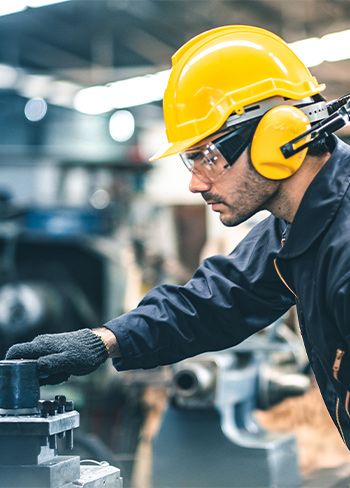Industrial equipment is a vital component of many businesses, helping to increase efficiency and productivity. However, operating this machinery comes with inherent risks that operators must be aware of. Safety should always be the top priority when working with industrial equipment to prevent accidents and injuries. Here are some essential safety tips for operators to consider:
1. Proper Training
Before operating any industrial equipment, operators must receive proper training on how to use the machinery safely and effectively. Training should cover operating procedures, maintenance tasks, emergency protocols, and any potential hazards associated with the equipment. Regular refresher courses should also be provided to stay up-to-date on the latest safety guidelines.
2. Wear Personal Protective Equipment (PPE)
Operators should always wear the appropriate personal protective equipment (PPE) when working with industrial equipment. This may include safety goggles, gloves, hard hats, ear protection, and steel-toed boots, depending on the machinery being used. PPE can help prevent injuries in the event of an accident or malfunction.
3. Conduct Routine Inspections
Before using any industrial equipment, operators should inspect the machinery for any visible damage or signs of wear and tear. Regular maintenance checks can help identify potential issues before they escalate into serious problems. Operators should also follow the manufacturer’s recommended maintenance schedule to ensure the equipment remains in good working condition.
4. Follow Proper Procedures
Operators should always follow the proper operating procedures outlined in the equipment manual. This includes starting up the machinery correctly, using the appropriate settings and controls, and shutting down the equipment safely. Failure to follow these procedures can result in accidents and injuries.
5. Stay Alert and Focused
Operating industrial equipment requires full concentration and focus. Operators should avoid distractions, such as using a phone or talking to coworkers, while operating the machinery. Being alert and aware of one’s surroundings can help prevent accidents and ensure the safe operation of the equipment.
6. Communicate with Team Members
Clear communication is essential when working with industrial equipment, especially in a team environment. Operators should communicate with their coworkers to coordinate tasks, share information about potential hazards, and alert others to any issues or concerns. Effective communication can help prevent accidents and improve overall safety in the workplace.
7. Emergency Preparedness
Operators should be familiar with the emergency procedures and protocols in place in case of an accident or malfunction. This includes knowing how to shut down the equipment quickly and safely, as well as understanding evacuation routes and emergency exits. Being prepared for emergencies can help mitigate risks and minimize the impact of any unforeseen incidents.
By following these safety tips, operators can reduce the risk of accidents and injuries when working with industrial equipment. Safety should always be a top priority in the workplace to protect both operators and the equipment itself. By staying informed, following proper procedures, and being proactive about safety measures, operators can create a safer working environment for everyone involved.
Remember, safety first!
